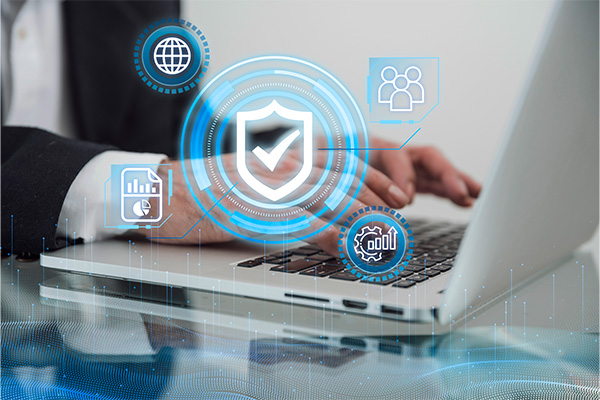As an ERP solution, SAP Business One is specifically designed for the benefit of small-to-medium enterprises (SMEs). Overall, SAP B1 has been a cost-effective solution for SMEs across the globe. However, SMEs must also understand the various SAP Business One cost factors that can influence how much money they spend on this ERP solution.
Here’s a look at the various factors that can influence SAP B1 pricing for SMEs:
1. Licensing
SAP Business One licensing factors are among the important factors that can impact pricing for SMEs. SAP B1 is generally available with the following licensing options:

- On-premises licensing
- In this option, SMEs have to pay a one-time licensing fee for SAP Business One and then use this licensed ERP solution for ever. This licensed version offers customers the full range of SAP B1 features and modules. SAP B1 also has a limited licensing option that provides access to core functionalities like financial management, logistics, and CRM. The full license option is more expensive than the limited licensing version.
- Subscription-based licensing
- In this option, SMEs can use SAP B1 on a subscription basis by paying a monthly fee for each user. With this option, subscribers have to renew their subscription at the end of every year.
2. Deployment Mode
For SMEs, ERP deployment considerations also can influence SAP B1 pricing. Traditionally, SAP B1 was only available for on-premises deployment. Now, this ERP solution can also run on the cloud. For running SAP Business One on the cloud, organisations can opt for either of the following:
- Software-as-a-Service (SaaS) model where subscribers can pay for monthly (or yearly) subscriptions.
- Infrastructure-as-a-Service (IaaS) model where customers have to pay an upfront fee to use the SAP cloud platform.
3. Number of Users
The number of SAP B1 users can also determine the overall costs of this ERP solution for SMEs. The more licensed users there are, the higher the cost. Based on the number of users, SAP B1 offers the following licensing options:
- A professional license is available for power users who need complete access to all SAP B1 functionalities.
- The limited user license is available for users who need access to specific SAP B1 modules. This comprises of the following:
- Limited CRM user can access modules like CRM, sales, and procurement.
- Limited financial user can access finance-related modules like sales, accounting, and inventory.
- Limited logistics user can access logistics-related modules like banking and purchase.
4. SAP B1 Modules and Add-ons
SAP Business One supports a host of ERP modules and add-ons to improve its functionality and address specific business requirements. These components can be among the major SAP Business One cost factors for SMEs. SMEs can incur additional costs depending on the SAP B1 modules they choose.
Additionally, SMEs need SAP B1 developers to work on customised SAP Business one add-ons. Depending on the complexity of the add-on feature, this can increase their development costs.
5. Customisation Costs
Besides add-ons, enterprises also want to customise SAP B1 according to their business requirements and operations. This can require the services of a qualified SAP B1 partner to understand your specific requirements and make the changes to the ERP solution. Depending on their industry experience, SAP partners can charge you additional customisation fees, adding to the overall ERP implementation costs.
In addition to customisation, SAP B1 experts can also charge you for integrating this ERP system with third-party solutions.
6. SAP B1 Support and Maintenance
Beside ERP implementation costs, small companies also need to pay more for SAP B1 maintenance and customer support. This is a recurring cost that they need to pay for every year to continue to use SAP Business One.
SAP B1 maintenance ensures that you have access to the latest product upgrades, bug fixes, and software patches. Depending on your service level agreement (SLA) with the SAP company, you may need to spend an additional fee for SAP maintenance and support.
7. Infrastructural and Hosting Costs
Whether for on-premises deployment or the cloud, SMEs need to invest in infrastructure or hosting platforms to run their SAP B1 solution at all times.
On-premises infrastructure needs to be spent on hardware, including desktops, servers, and data storage. Depending on the SAP Business One scalability costs, they may also need to upgrade their hardware to meet their growing business requirements.
For cloud deployment, small businesses incur lower upfront costs – but need to renew their cloud subscription account every year.
8. SAP B1 Consultancy Fees
A small business cannot hire an SAP Business One expert or consultant in a full-time capacity. They can partner with an external SAP B1 consultant (or consultancy firm) to guide them through the implementation process.
Depending on their technical knowledge, they can charge a steep monthly fee, which can add to the SME’s ERP pricing considerations.
In addition to the consultancy fees, small businesses may need to pay other ERP-related charges, such as legal expenses and government taxes.
Conclusion
As highlighted in this article, multiple factors can influence the pricing of SAP Business One in any small enterprise. A qualified SAP business partner can guide you through these pricing considerations without hiding any charges.
Among the leading ERP service providers in India, Praxis Info Solutions provides a competitive SAP B1 ERP pricing for small companies based in India. With our expertise in SAP Business One, we work closely with companies to evaluate their business requirements and implement the best ERP solution.
By partnering with us, you can take advantage of our cost-efficient SAP solutions and consultancy services.
Contact us today to learn more about our offerings.

